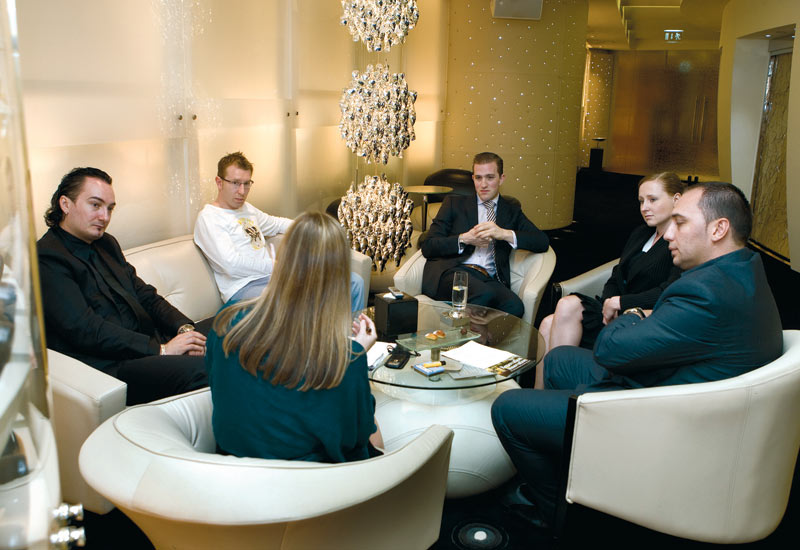Then if you then want to do something in terms of alcohol, you team up with MMI or A+E, and they can maybe do a master-class on the side of the meeting.
Hartmann: But for an association, you do need to have proof for two years of meetings — so minutes for every monthly meeting; that’s all part of the package you have to submit to the IBA to become a member. So it’s a big undertaking.
Gergov: The real problem is that here there are not that many people working in the industry who are planning to stay around for the long term and who can therefore build an association. A handful of us have been around a while, but there’s not a huge number of people who would stay here and oversee this chapter.

Advertisement
Nick Hancock: I came to Dubai at the end of last year and I did feel there was something lacking compared to the rest of the world, precisely because there isn’t anything like the IBA.
Recently I’ve had a lot of western bar professionals, really top bartenders, asking me about coming out here to work. But it’s difficult explaining to them that it’s different in this region — you just don’t earn the kind of money that you do in Las Vegas or London or wherever.
Simon Hopman: I’d agree with that; you can’t just rely on bringing top people in. You definitely do need to train them internally, which is why our beverage programme is one of the most extensive in Dubai. The experience bartenders might have elsewhere you don’t really find here, so you do need to train them yourself.
Rebecca Sturt: From what I have seen working within these huge co-operations, a lot of people do not seem to have the time to train their staff.
A beverage or bars manager is generally tied down to operational duties rather than spending time training — which is good for us, as it keeps us busy, but it does mean new staff go behind the bar without proper training, which makes them vulnerable.
One of the other big factors is payment structure. In bars in London, New York or Paris, bartenders are well paid, they earn a lot of tips and they are rewarded for their hard work, dedication and knowledge.
Here in Dubai, F&B staff are not paid for the hours or hard work they put in. Working 12 to 15 hours a day, six days a week is very intense — but if they were paid properly to do that, I’m sure they wouldn’t mind working those extra hours.
Hartmann: In Europe, when you’re a real bar professional, it’s like you’re a celebrity. But in Dubai you’re on the same benefits and accommodation as a waiter — and you can’t attract the top people by offering that.









 Search our database of more than 2,700 industry companies
Search our database of more than 2,700 industry companies










Nov 15, 2009 , India
excellent step,i really thanx to u all.anythng i can do pls let me know or cal me 0509571504.i wana be a member of this association.